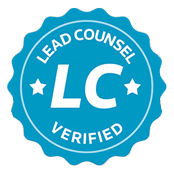Lithium-ion batteries have become an indispensable power source for a wide range of consumer electronics and electric vehicles. However, faulty lithium-ion batteries also pose significant safety risks due to their propensity to overheat and even explode under certain conditions. High profile incidents involving exploding lithium-ion batteries in smartphones, laptops, and electric vehicles have highlighted the potentially catastrophic consequences of defective lithium-ion batteries. This article examines the risks associated with faulty lithium-ion batteries and strategies to mitigate these dangers.
How Lithium-Ion Batteries Work
Lithium-ion batteries work by shuffling lithium ions between a positive and negative electrode. The electrodes are separated by an electrolyte solution which allows the lithium ions to flow freely between the poles. When the battery is charging, lithium ions are released by the positive electrode (cathode) and insert themselves into the crystal structure of the negative electrode (anode). This process is reversed during discharge, generating an electric current.
Key Advantages of Lithium-Ion Batteries
Compared to other rechargeable battery chemistries, lithium-ion batteries offer superior energy density, lower self-discharge, higher cell voltage, and longer cycle life. These characteristics make lithium-ion batteries well-suited for powering portable consumer devices and electric vehicles. Lithium-ion batteries pack substantial energy storage in a lightweight and compact format. They hold their charge well when not in use and can handle hundreds of charge/discharge cycles.
What Causes Lithium-Ion Batteries to Explode?
While very safe when properly manufactured, lithium-ion batteries can become hazardous under certain fault conditions. The flammable organic electrolyte makes lithium-ion batteries intrinsically more prone to catch fire and explode compared to other battery types if control systems fail. There are several potential weak points that can lead to thermal runaway and explosions:
- Internal short circuits – Defects like metal contaminants or improperly aligned electrodes may allow the positive and negative terminals to connect internally, creating a short circuit and unchecked current flow. This generates extreme heat that can ignite the electrolyte.
- External short circuits – Exposure of the battery terminals to a conductive material can similarly short circuit the cell and cause overheating.
- Overcharging – Excessive voltage outside the safe range for lithium-ion batteries can lead to plating of metallic lithium, cathode degradation, and electrolyte breakdown. This destabilizes the cell and provides fuel for thermal runaway.
- Overheating – High ambient temperatures can lower the temperature threshold for runaway. Mechanical damage or internal flaws may also cause localized hotspots.
- Overdischarging – Letting the battery voltage drop too low for too long can damage the electrode materials and render the cell unstable.
- Manufacturing defects – Contaminants, poor electrode alignment, inconsistent materials, and other quality issues can introduce weaknesses in the cell even before use.
Once thermal runaway is initiated, the battery temperature can spike to over 900°F. The electrolyte ignites, releasing gases that cause the battery to bloat and eventually burst open.
High Profile Product Recalls Due to Exploding Batteries
Safety concerns over defective lithium-ion batteries have prompted major recalls from several manufacturers:
- Samsung Galaxy Note 7 phones – Multiple reports of overheating and fires due to battery flaws triggered a global recall of the Note 7 in 2016. Samsung attributed the battery issues to defects from their suppliers.
- Apple MacBook Pro laptops – select 15-inch MacBook Pro laptops sold between 2015-2017 were recalled in 2019 following incidents of overheating batteries catching fire. The cause was traced to an internal battery component problem.
- Boeing 787 Dreamliners – in 2013, the entire fleet of Boeing 787s was temporarily grounded. Batteries supplied by GS Yuasa were found to be at risk of thermal runaway and fire.
- Tesla and Chevrolet electric cars – both automakers have issued limited recalls of their plug-in electric vehicles over battery pack defects leading to fire risks.
These incidents illustrate the substantial financial, legal, and reputational liabilities companies face when defective lithium-ion batteries lead to system failures and injuries.
Strategies for Mitigating Lithium-Ion Battery Safety Risks
Given the potentially catastrophic outcomes of defective lithium-ion batteries, addressing battery safety and reliability should be a top priority for manufacturers. Various tactics can help minimize hazards:
- Rigorous manufacturing quality control – this includes screening of battery components for contaminants, validating assembly procedures, and testing finished batteries.
- Battery management systems – electronics that monitor voltage, current, and temperature can prevent operation outside safe parameters.
- Safer battery chemistry – research is ongoing into electrolyte additives and cathode materials less prone to thermal runaway. Solid-state lithium-ion batteries could offer a much safer alternative.
- Battery safety testing – batteries should be evaluated under simulated failure conditions like short circuiting, overcharging, crushing, and heating.
- Thermal isolation and containment – batteries can be physically designed to direct hazardous gases or flames away from users in a thermal event. Fire-resistant casings can prevent fire spread.
- Effective warning systems – detecting battery irregularities early and warning the user can allow time to take corrective action or evacuate the area.
- Responsible battery sourcing – manufacturers should thoroughly vet battery suppliers to ensure safe and reliable components.
By making battery safety a priority, companies can reduce the risk of dangerous battery failures and protect the reputation of lithium-ion technology.
What to Do If You Are Injured By an Exploding Product
If you purchased a consumer product that exploded or caught fire due to a faulty lithium-ion battery, you may have a legal claim against the manufacturer. Burn injuries, smoke inhalation, property damage, and other losses caused by unpredictable battery failures merit compensation. An experienced California personal injury attorney can advise you of your rights and options.
Manufacturers have a responsibility to deliver safe, non-hazardous products to the public. You may be eligible to recover damages through a class action lawsuit or individual claim. Contact us for a free consultation if you or a loved one has suffered harm from an exploding lithium-ion battery. We can assess your case details to determine the best course of legal action. You should not have to bear the burdens caused by a dangerously defective product. Instead, we will fight to hold irresponsible manufacturers fully accountable.
Visit one of our offices at:
- Beverly Hills – 8383 Wilshire Blvd, Suite 830, Beverly Hills, CA 90211
- Los Angeles – 212 East Pico Blvd, Suite #4, Los Angeles, CA 90015
- Tulare – 100 E. Cross, Suite #122, Tulare, CA 93274
- Hanford – 13400 Hanford Armona Rd, Suite #B
Or call now for a free consultation on (877) 729-2652 or (323) 782-9927.













